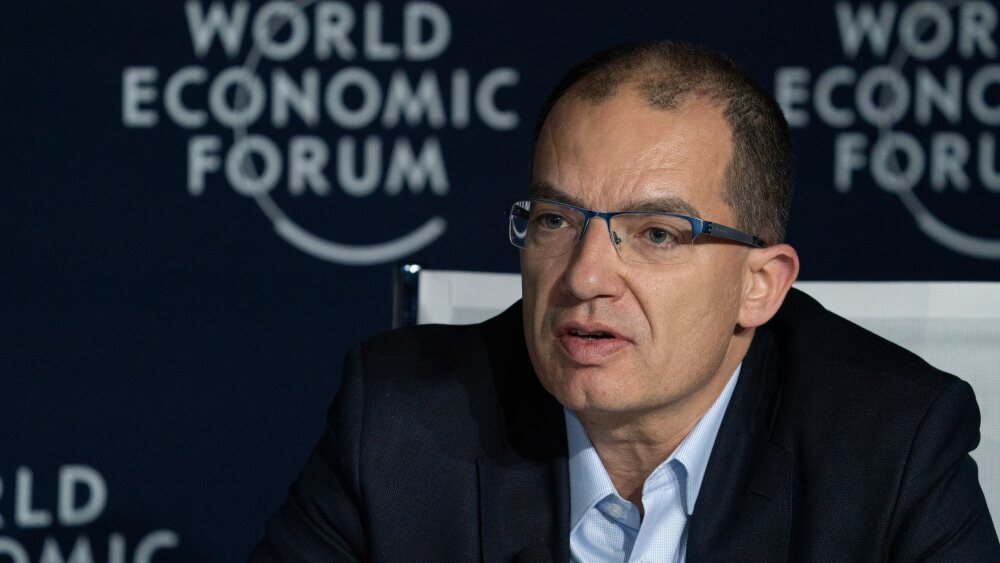With incoming president Donald Trump threatening a trade war with China, experts told BioSpace that the new administration will likely understand why medicines should be treated differently.
Drugs developed in China have finally crossed into the mainstream, with pharma execs now eyeing these assets as novel, best-in-class options instead of me-too follow-ons. At the same time, the U.S. is changing presidents to Donald Trump, who has proposed tariffs that threaten a trade war.
Most experts who spoke with BioSpace on the sidelines of the J.P. Morgan Healthcare Conference expressed confidence that the incoming administration will understand the potential these new drugs represent for patients.
“Science doesn’t know any boundaries,” Gilead CFO Andrew Dickinson said during a reporter roundtable.
Maha Radhakrishnan, executive partner of private equity at Sofinnova Investments, was also confident that the Trump administration will not include drugs in its trade agenda.
“Politics aside, I don’t think any leader would be opposed to innovation in medicine and science,” Radhakrishnan said in an interview. “That’s the way I look at it.”
But that doesn’t mean companies should proceed business as usual in negotiating these deals right now, she added.
An Uncertain Trade Future
Paul Hastings, CEO of cell therapy biotech Nkarta Therapeutics, said the threat of tariffs on Chinese imports has not been clearly defined. Whether Trump will consider intellectual property or imported drugs for development in his broader trade agenda remains to be seen.
“It shouldn’t matter to somebody where an asset came from. What should matter to somebody is how good was the science that got it to where it was,” Hastings told BioSpace. “So if somebody sees an asset from China that’s Phase II–ready, and they license it, hopefully they’re not gonna get punished for that down the road.”
The FDA previously rejected an Eli Lilly–partnered drug that had been licensed from a Chinese company and requested a new study. While there have been calls for the FDA to spell out its requirements, Hastings spoke specifically to the threat of tariffs on licensing deals from China.
“If people are grabbing those assets, that means that over the last number of years, China was able to figure out a way to innovate. What’s wrong with that?” he said.
While Gilead brushed off concerns of a broader attack from the incoming administration on China licensing deals, Dickinson said that the company is of course being careful as it enters conversations with Chinese biotechs. But it is not slowing down meetings as the new administration prepares to take power.
“I wouldn’t say that we’re holding off or hesitating at all,” Dickinson said. “We’re obviously being cautious. If there are issues related to protection of data and these types of things, we’re careful and we understand that. We’re eyes wide open on that.”
One major trend is American companies forming around Chinese assets after Phase I or II, bringing the intellectual property and the trials stateside for further testing. Kailera Therapeutics, which launched in October 2024 with a whopping $400 million from Atlas Venture, Bain Capital Life Sciences and RTW Investments, is a prime example.
Radhakrishnan said these are American companies even if the assets originated in China. That’s something that should appeal to the incoming administration.
“No matter who comes into the administration, I think it’s a matter of pride to say that this is an American company,” she said. “There’s a NewCo forming which is actually innovating in this area.”
And the innovation coming from China is breaking barriers and giving leaders like Gilead CEO Daniel O’Day pause. These are not “me-too” medicines anymore, as had been the case in previous years. These drugs have first-in-class potential now.
“In terms of innovation coming in, the types of innovation that we’re talking about and working with, I think there’ll be an appreciation for that,” O’Day said at the roundtable.
The CEO pointed to the BIOSECURE Act as he professed confidence that the new administration will exempt China-developed drugs from trade upheavel. He said pharma was able to negotiate with Congress on that bill, which was tabled prior to the holiday break but could be revived in 2025, to ensure national security concerns were addressed while allowing access to important Chinese supply chain companies.
“What resonates well in Washington is that as we approach these types of geopolitical issues, we have to make sure it doesn’t limit access for Americans to the medicines they need to be healthy,” O’Day said.
Negotiations on the BIOSECURE Act allowed time for American companies to shift their supply chain operations to other resources, rather than forcing the change cold turkey, he explained.
Sofinnova has been a frequent investor in companies with Chinese origins, having participated in the $245 million financing round for Aiolos Bio in October 2023, which was snapped up months later by GSK for over $1 billion.
“I have to say, innovation happening in China, it is just unbelievable,” Radhakrishnan said. “It’s hard for us to keep up in terms of what’s going on. Some companies have literally catalogs of assets that they are willing to either co-license or give up into NewCo formations.”
She’s particularly excited about the obesity drugs, antibody-drug conjugates (ADCs) and bispecifics coming from the region. Sofinnova has been helping these companies by offering up its vast network of potential executives who have the expertise to run a U.S. biotech and, most importantly, a clinical trial in North America.
“Having watched Trump be our president for one term already, I don’t see him as a barrier, but we have to wait and see,” Radakrishnan said. “But for me as a physician-scientist, I have no fear that innovation will be paused or stopped.”






